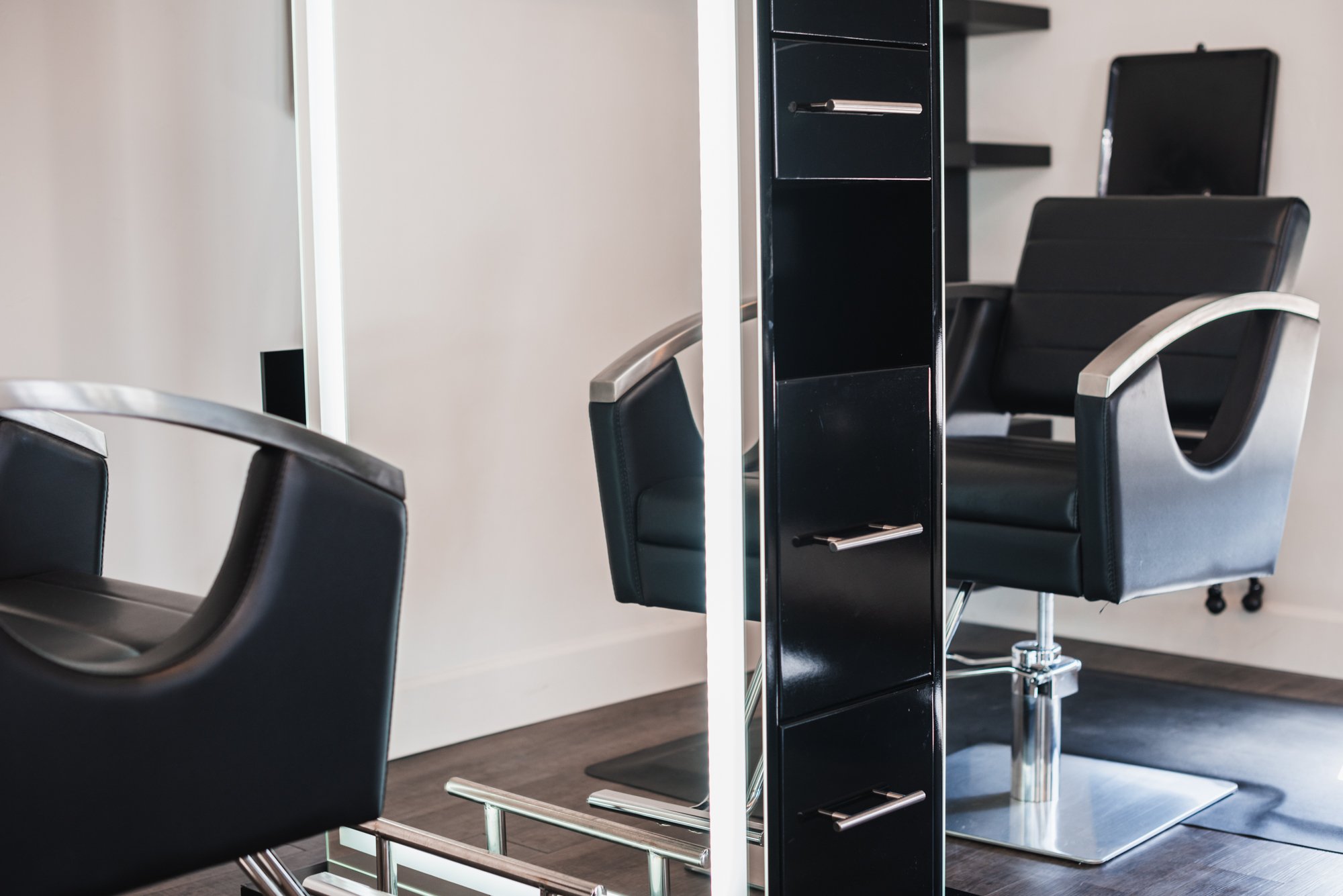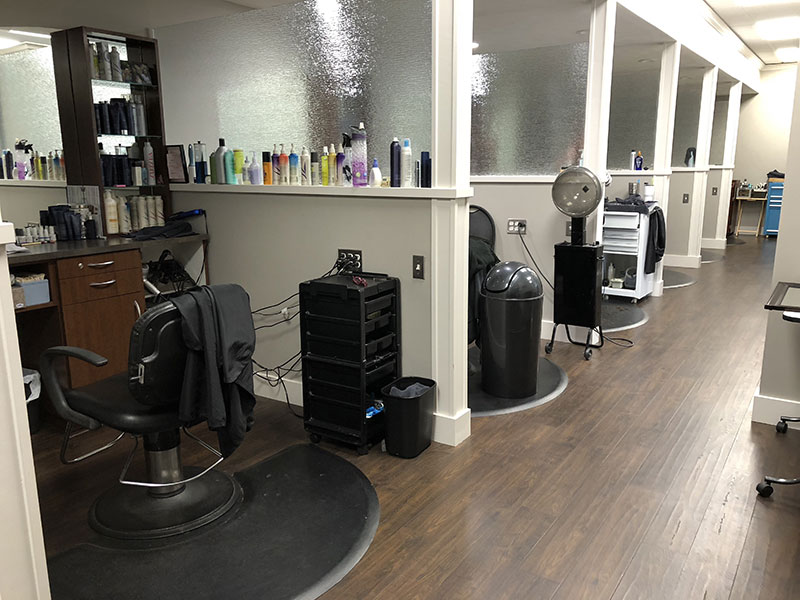Strategic Choices: Considering the Benefit of Renting Versus Possessing a Hair Salon Area to Enhance Long-Term Success and Financial Practicality
When it comes to establishing a beauty parlor business, one of the important decisions that owners have to thoroughly take into consideration is whether to rent or have the room in which they operate. The option between leasing and owning a beauty parlor space can have a substantial impact on the lasting success and monetary wellness of the service.

Benefits And Drawbacks of Renting Out
When considering the decision between renting a beauty salon space or owning one, it is vital to weigh the pros and disadvantages of renting out to make an educated option. One primary advantage of renting out a hair salon space is the flexibility it supplies. Renting out enables beauty salon proprietors to examine various areas or high end their business without the commitment of a lasting mortgage. Additionally, renting typically entails fewer ahead of time costs, making it a much more available alternative for new salon proprietors or those with budget restrictions.

Financial Elements to Take Into Consideration

Thinking about the economic ramifications of renting a beauty parlor space versus having one is crucial for making a knowledgeable organization decision. When reviewing the financial aspects, it is crucial to examine the first costs connected with each alternative. Leasing a beauty parlor space normally calls for a safety and security down payment and month-to-month rent repayments, whereas possessing involves a down repayment, home loan settlements, property tax obligations, and upkeep expenditures.
Furthermore, the long-lasting financial implications differ in between leasing and having. On the other hand, possessing a beauty parlor area provides possible equity development and the opportunity to build properties.
Furthermore, consider the effect on money flow and productivity. Leasing may supply lower upfront expenses, enabling you to allot even more resources to marketing and company development. In comparison, owning calls for a substantial preliminary investment however may lead to set you back savings in the long run. Evaluating these economic aspects comprehensively will aid you make a critical decision that maximizes your beauty parlor's long-term success and economic stability.
Operational Adaptability and Control
Ideal functional efficiency plays a crucial function in establishing the balance in between adaptability and control when making a decision in between renting and having a salon room. Renting a beauty salon room provides integral versatility as it permits for easier modifications to changing market problems, customer preferences, or service requirements. This flexibility is especially beneficial for new beauty parlor proprietors or those aiming to test different areas prior to devoting lasting. Furthermore, leasing supplies the advantage of not being tied down to a specific building, making it possible for less complicated moving if needed.
On the various other hand, having a beauty salon space provides a better feeling of control over the building and its procedures. Proprietors have the flexibility to customize the room to their taste, execute long-lasting techniques without the risk of lease terminations, and possibly construct equity gradually. However, ownership additionally features obligations such as residential or commercial property upkeep, insurance coverage, and real estate tax, which can influence the general economic commitment.
Inevitably, the decision in between renting out and owning need to consider the wanted level of operational adaptability and control that aligns with the beauty parlor's long-term objectives and vision.
Financial Investment Prospective in Possession
Provided the operational considerations discussed previously, exploring my company the financial investment capacity in beauty salon ownership loses light on the monetary implications and lasting advantages that come with owning a hair salon area. By investing in a beauty parlor area, proprietors have the prospective to benefit from property recognition, which can serve as an important property in the long run.
Moreover, ownership permits greater control over the room, enabling owners to tailor and tailor the beauty parlor to their details brand and vision without the restrictions often imposed by property owners. This degree of control can enhance the total customer experience and brand name identification, potentially resulting in boosted customer retention and business growth.
In regards to financial investment possibility, possessing a beauty salon area can additionally open opportunities for additional income streams, such as leasing extra room to various other beauty experts or integrating retail sales within the beauty parlor. Salon suites. These diversified income sources can contribute to the general monetary health and wellness and sustainability of business
Long-Term Security and Development
With see this page an emphasis on sustainability and development over time, establishing long-term stability and promoting development are essential facets of hair salon possession. To ensure long-term stability, beauty salon proprietors have to carefully consider factors such as place, market patterns, and economic preparation. Choosing between renting and owning a salon room plays a significant duty in determining business's growth potential.
Renting a salon room gives flexibility and lower preliminary expenses, permitting proprietors to allocate resources towards enhancing solutions and marketing initiatives. Long-lasting rental expenses can affect success and restrict the capacity to build equity in the residential or commercial property. On the other hand, owning a beauty salon space offers security with repaired home loan repayments and the capacity for residential or commercial property appreciation. By possessing the space, salon owners have even more control over personalizing the home to match their brand name and can take advantage of lasting possession development.
Eventually, the choice in between renting official source out and possessing a salon space must line up with the proprietor's lasting business goals and monetary goals. Whether focusing on adaptability or equity structure, a critical approach to residential or commercial property ownership can considerably affect the beauty parlor's security and growth trajectory.
Final Thought
To conclude, the decision between renting and owning a beauty salon space requires a careful assessment of financial factors, operational flexibility, investment potential, and long-term stability. Both options feature their very own collection of benefits and downsides, and it is necessary for hair salon proprietors to evaluate these elements to optimize long-term success and economic viability. Salon suites. Ultimately, the choice in between leasing and owning should be based upon a thorough evaluation of specific organization objectives and conditions